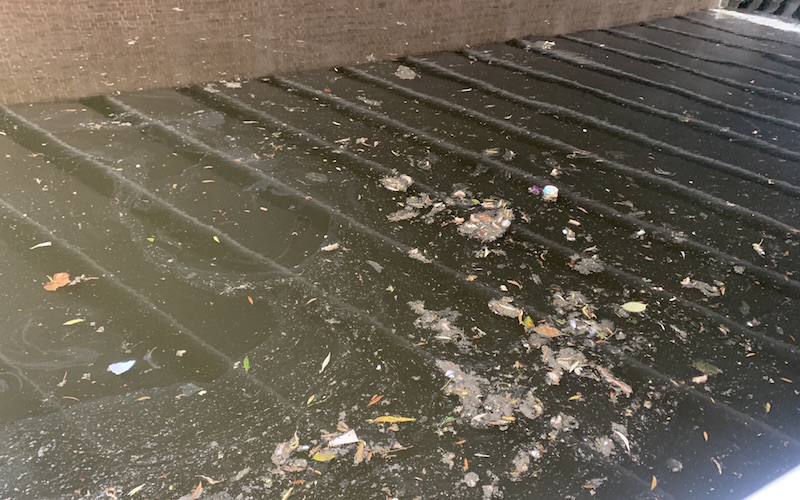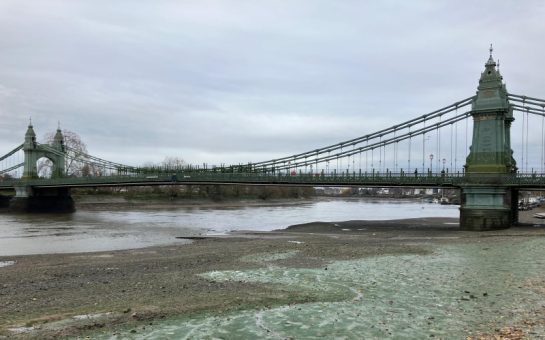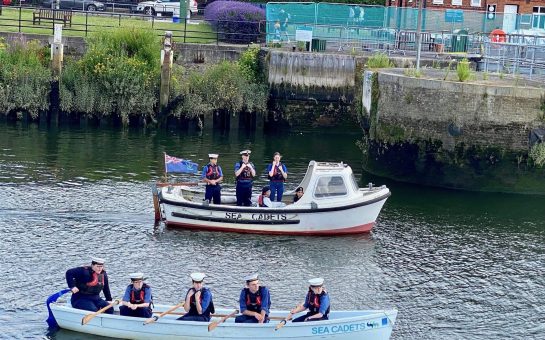Thames Water sewage leaked into rivers for more than 400,000 hours in the last three years, analysis has revealed.
A total of 434,197 hours, the equivalent of 49 years, was leaked from 2021 to 2023, according to analysis of Thames Water’s public data.
In the worst hit area over the time period, sewage leaked into waterways at Clanfield in Hampshire for 7,201 hours, closely followed by Stewkley in Buckinghamshire at 6,958 hours, equivalent to 300 and 289 days respectively.
According to Thames Water’s website, at times of heavy or continued rainfall, the sewer system can’t always cope with the extra volume, so storm overflows divert some of the rainwater and raw sewage into watercourses, known as storm discharge.
Liberal Democrat MP for Twickenham Munira Wilson commented: “Thames Water has committed to reducing these spills, yet we’ve seen serious pollution instances increase in recent years. That’s what we need to be tackling.
“Our rivers and waterways are so precious to us and we have this scandal of sewage being pumped into our rivers and waterways up and down the country.
“They have clearly not taken their responsibilities seriously enough around sewage and leakage.”
Just 4% of cases where there was an operational review into the storm discharges were categorised as resolved from 2021-2023 according to its public data, while none were classed as resolved in 2023.
The reviews owed the discharges to performance issues such as infiltration, sewer collapse, or asset configuration or alternatively to hydraulic capacity.
When it was due to hydraulic capacity, action was classed as non-applicable, yet it was the outcome of 48% of operational reviews, and it was responsible for 32% of cases where sewage was spilled for 1,000 hours or more from 2021-2023.
Thames Water were contacted for comment multiple times. Its website states that putting untreated sewage into rivers is unacceptable, and it’s working hard to stop it.
London resident Evelyn Arnander commented: “I’m intrigued how these instances don’t get resolved when you consider the health consequences.”
Looking to this year, as of 5pm on 3 May, 50 locations were actively discharging sewage, with Markygate and Chesham vying for first place at 1,065 hours and 1,545 hours since their overflows started according to the Thames Water storm discharge map.
Wilson said: “We need to see much tougher regulation of our water companies and further action.
“These companies, including Thames Water, have been able to borrow lots of money whilst paying massive executive bonuses, shareholder dividends and not investing in infrastructure, and the results of that is the sewage overflow and huge amounts of water leakage.
“That’s necessitating schemes like Teddington Direct River Abstraction (DRA), which residents completely don’t want to see.”
The proposal would see treated sewage pumped into the river above Teddington Lock in Twickenham.
In terms of the implications on our health and our wildlife, River Action confirmed levels of E.coli were up to 10 times higher than what the Environment Agency grades as poor for designated bathing areas, according to tests between 28th February and 26th March.
The locations of the testing suggest it comes from Thames Water discharging sewage directly into the river and its tributaries.
The impact can be seen in many contexts, as rowers taking part in the Boat Race between Oxford and Cambridge were warned not to enter the Thames, as well as to cover blisters and wear footwear when getting in and out of the boat.
London based actor Daisy-May Parsons commented: “This is why there is a rise in people buying bottled water from supermarkets so the impact on single use plastic is awful as well. A few of my friends won’t drink tap water.”
In rivers near Gatwick, 1,700 fish were killed after Thames Water pumped undiluted sewage into the area, for which it was fined £3.34m in July 2023.
Wilson confirmed that the Liberal Democrats have called for Thames Water to be put into special administration, where Government would steward the company without taking on its debts, whilst in the longer term it has called to transition it into a public benefit company.
Wilson added: “This would mean it’s run with the good of consumers and the environment in mind.
“You’d have an environmentalist on the board and consumers on the board, so it’s not run for financial profit but thinking about the environmental impact.”





